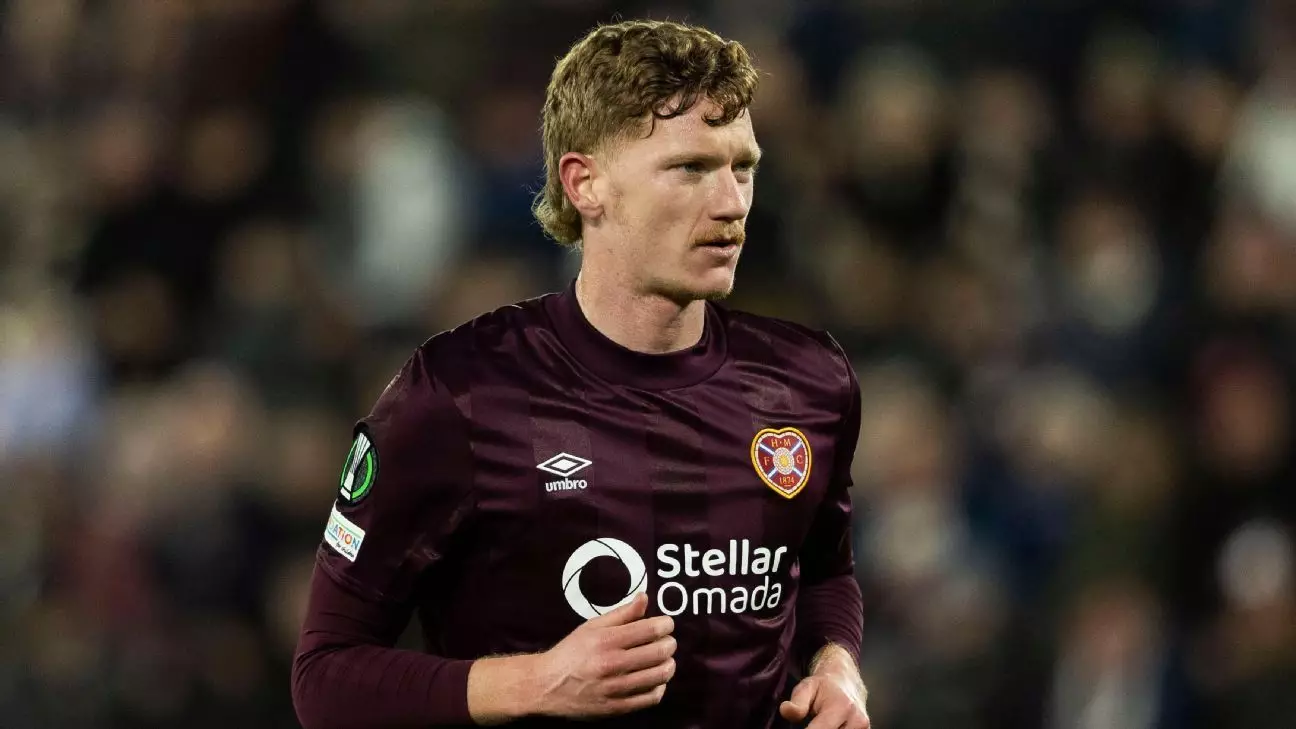The influx of Australian footballers into Major League Soccer (MLS) signifies an ongoing trend that promises to reshape the landscape of soccer for the nation. With the appointment of Socceroos head coach Tony Popovic, there is a renewed emphasis on elevating the careers of Australian players by leveraging the opportunities presented by MLS. The recent transfer of Kye Rowles from Scottish side Hearts to D.C. United shines a light on the potential this league holds for Australian athletes striving for professional growth.
Kye Rowles, a resilient 26-year-old center-back, recently made the transition to D.C. United, signing a two-year contract with an option for an additional season. This move is pivotal not just for Rowles but also for other Australians in the league, emphasizing the increasing trend of Australian talent finding a home in MLS. Alongside Rowles, players like Patrick Yazbek from Nashville SC and under-23 national representatives Jake Girdwood-Reich, Lachlan Brook, and Giuseppe Bovalina highlight a growing pipeline of Australian talent accessing opportunities overseas.
The willingness of MLS franchises to invest in Australian players has resulted in significant transfer fees, marking a turning point for the perception of Australian footballers abroad. Rowles’ transfer reportedly netted Hearts £600,000, while Girdwood-Reich’s move secured a record transfer fee for Sydney FC. These financial arrangements underscore the investment and validation of Australian talent at higher levels, pushing the boundaries for future engagements.
Popovic’s remarks on MLS reflect a broader acknowledgement of the league’s stature. Ranked as the ninth-best league in global football by Opta Power Rankings, Popovic is optimistic about the prospects that lie ahead for players within this professional framework. He commended the league for its organizational professionalism, robust resources, and substantial fan engagement—all elements that make it a practical option for players looking to enhance their careers.
“The players going there, it’s a good stepping stone, I believe,” Popovic candidly stated. He draws parallels between Rowles’ experiences in Scotland and the American league environment, suggesting that the more structured resources and amenities in MLS may provide a competitive edge that translates to developmental growth.
As the excitement of fresh prospects welcomes the Socceroos, there are concurrent challenges that the team faces in terms of player injuries. The recent Achilles tendon injury to Harry Souttar poses a significant burden on Australia’s defensive lineup, putting immense pressure on Rowles and his compatriots to step up. Souttar’s absence could create vulnerabilities within the defensive fourth, especially with other players, such as Alessandro Circati, sidelined due to ACL injuries.
Popovic highlighted the unique attributes that Souttar brought to the squad, making replacement difficult. “Like for like, you don’t replace a Harry,” said Popovic, underlining the distinctive skill set that could lead to instability in the backline. This situation necessitates the search for players with similar capabilities, creating a need for strategic adaptation and flexibility within the team structure.
Believing in alternative solutions, Popovic maintains an open approach to evaluating talent. By seeking players who can provide both stability and technical finesse, he hopes to reinforce the defensive line effectively. As the Socceroos prepare for crucial 2026 FIFA World Cup qualifiers, this adaptability will be vital in ensuring the team’s competitive edge.
As the January transfer window approaches, another key player for the national team, Mathew Ryan, is reportedly on the verge of securing more playing time through a potential move to Ligue 1 side Lens from AS Roma. This opportunity is crucial for Ryan, as he has struggled for minutes while at Roma, and finding a vibrant footballing environment could reinvigorate his career.
Popovic acknowledges the importance of Ryan’s move, noting that it could give the goalkeeper the competitive edge he requires ahead of the Socceroos’ international commitments. “He’s going there with a view of getting more minutes,” said Popovic, emphasizing the crucial importance of playing time for Ryan as the team prepares for essential fixtures.
The participation of Australians in MLS and their potential reintegration into the Socceroos setup is a hopeful narrative for the future of Australian soccer. With a growing number of players securing positions in strong leagues, their experiences abroad can only hone their skills further and enhance the competitive standards of the national team. As Popovic continues to nurture these players while addressing challenges head-on, the Socceroos’ journey toward the next World Cup will be a testament to resilience, adaptability, and ambition.

